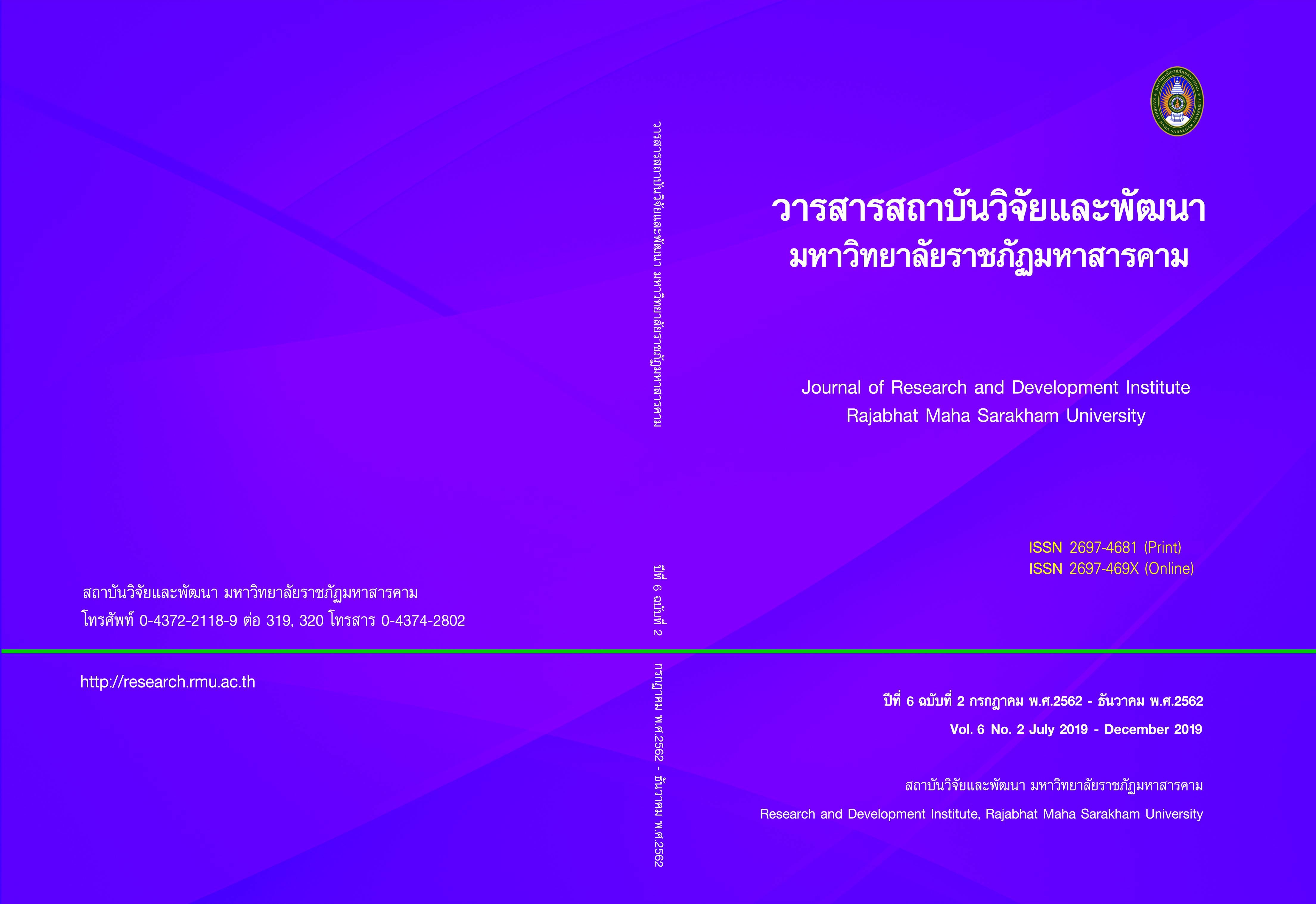Higher Education Piano Learning Management in North Eastern Thailand
Abstract
The purpose of the current study was to study higher education piano learning management in north eastern Thailand. Survey research approach was employed as the main methodology. The samples were 9 instructors teaching in 9 universities in north eastern Thailand. The 4 aspects of the study were curriculum, piano learning management, evaluation and assessment, and managerial difficulties of piano instruction. The instruments were an interview form and an observation form. The results of the study were as follows.
The results of the study indicated that at the level of higher education, the international curriculum was adapted to the contexts with the learning period taking 6-8 semesters were found. The 1-2 hour off-curriculum classes were also found once or twice a week. 3 level – lower, intermediate, and high of learning management were found. The parallel courses included music theories, chorus arrangement, music history, band performance, computer in music, and piano literature. The difficulties found in the management of piano instruction were lack of expertise instructors, learning resources, and low music proficiency learners recruited at the first stage of the curriculum. The recommendations in piano learning management were the instruction of standardized basic knowledge of piano, chooses of practicing songs, time management, mutual agreements between learners and instructors, and continuum of learning and practices
References
Ministry of Education. (2015). National Education Act. Bangkok : Ministry of Education. [In Thai].
Orawan Banchongsilpa. (1999). Music for Children to Develop Child Behavior. Nonthaburi : Sukhothai Thammathirat Open University. [In Thai].
Pongpitthaya Sapaso. (2012). Guide line for Development of the music Technogy Program in Thailand and Singapore. Maha Sarakham : Doctor of Philosophy Thesis (Music) Maha Sarakham University. [In Thai].
Sakchai Hirunrux. (2014). “Nature of music subject : study of scope, skills, knowledge and attitude, desirable characteristics in music”. Music Journal, 19 (5) : 2014. p. 14-19. [In Thai].
Sirichai Kanjanawasee. (2009). Traditional Test Theory. Bangkok : Chulalongkorn University. [In Thai].
Surapon Iam-aoo-sap. (2009). How to teach that is student-centered. Bangkok : Dok Mai printing. [In Thai].
Tisana Khemmanee. (2016). Teaching Science : Body of knowledge for Effective Learning Process Management. Bangkok : 20th edition, Chulalongkorn University Press. [In Thai].
Waraporn Srivirojn, Sirinapa kijkuakul, Wareerat Kaewurai and Wilaiwan Wipajuksanakul (2014). “The Development of Instructional Model in Stoichiometry based on Integrated Inquiry Training and Cooperative Learning to Enhance Critical Thinking for Upper Secondary Students in an Enrichment Science Classroom”. Journal of Education Naresuan University, 16 (3) : July3September 2014. p. 1-13. [In Thai].
Downloads
Published
How to Cite
Issue
Section
License
Articles that are published are copyrighted by the authors of the articles







